SenseCube prototypes for solidary start-ups
Published 8 June 2015 by Nicolas Barrial
Innovation can also go hand-in-hand with social awareness and solidarity. Makery visited SenseCube in Paris, one of the rare incubators specialized in start-up projects for solidarity.
Converting food waste into biogas (Love Your Waste), using corporate interns to work in social programs (Stagiaires sans frontières “Interns without borders”), creating a market for designer furniture made by socially instable people (UpCycly). These projects are all incubated at SenseCube, an “accelerator program for social start-ups […] using digital technologies to mobilize strong communities and solve social and environmental issues.”
While corporate social responsibility departments have flourished in recent years, a few young sprouts are choosing solidarity and living together as the core of their business. They can be found at incubators for the social and solidary economy such as Antropia at Essec school, Ronalpia in Lyon, Alter’Incub in the southwest of France and Social Good Lab in Paris.
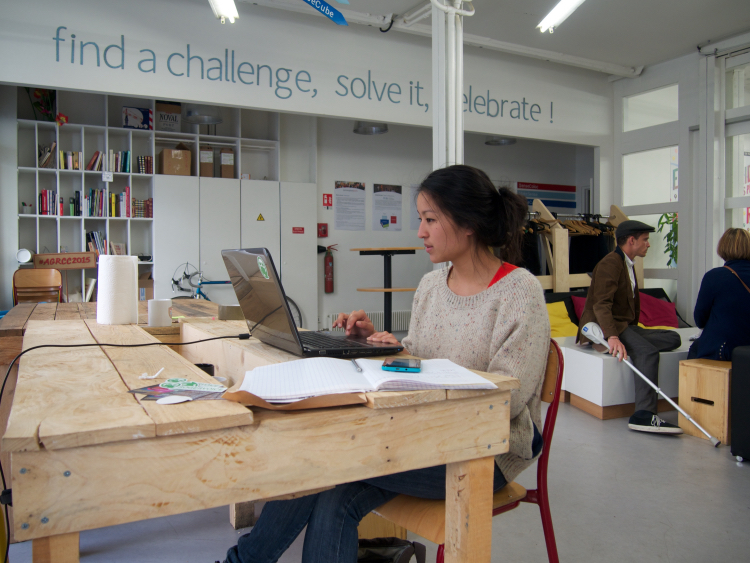
SenseCube, opened in Paris in 2014, is about to conclude its second incubation session for 7 start-ups, each hosted for 6 months at Bastille. Maï-Lien Nguyen Duy, co-manager of the incubator, explains that their selection criteria favors the “crazy bit” of projects, which must include a social or solidary impact in their specs, along with a feasible business model.
Rebel start-ups with a cause
But as opposed to traditional businesses, here “the goal is solidarity and the commercial offer is the means to attain it”, says Wassim Chelfy, founder of Upcycly. “There are a lot of problems in the world, and nobody is going to solve them for us”, he continues. “However, today we have access to unprecedented tools, this is the pivotal age.” These tools can be applications such as I Wheel Share, a future social network for places accessible to handicapped people that launched its call for funding on Ulule, or MyFuture, which helps high school students choose a career path.
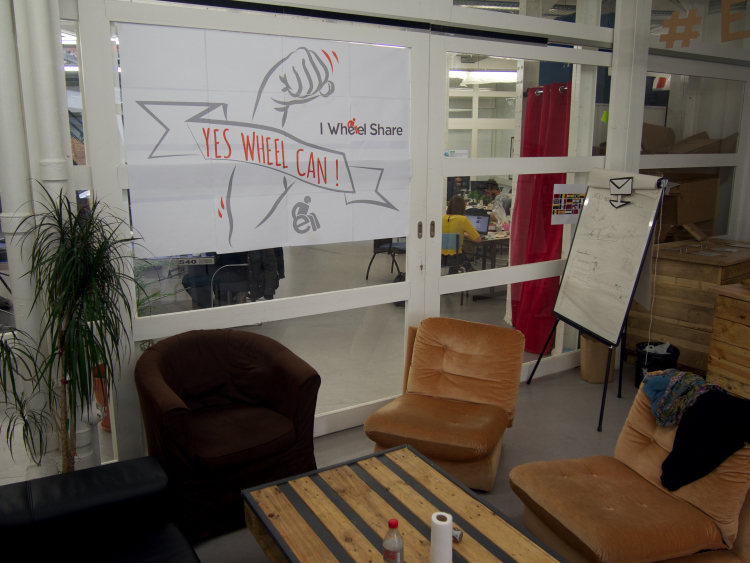
In the case of Upcycly, the tool is not digital but tangible—used pallets and tires, supported by Fullmobs to mobilize volunteers. By inviting the average Joe to build eco-friendly furniture from reclaimed materials, this disciple of Navi Radjou (co-author of the “frugal innovation” concept) seeks to prevent the maker movement “from becoming another in-group”.
Dimanche @Fullmobs a bricolé solidaire avec @UpCycly ! pic.twitter.com/ytkKkvCnIt
— Fullmobs (@Fullmobs) May 27, 2015
Perhaps that is where the business model lies, in adapting citizen initiative to commercial endeavors. UpCycly intends to train its staff to build their social spaces together. The young start-up has already created a network of aquaponic facilities based on the model of La ruche qui dit oui, in order to establish a relationship. But it’s no coincidence that Guilhem Cheron, co-founder of La Ruche, is one of the mentors of SenseCube…
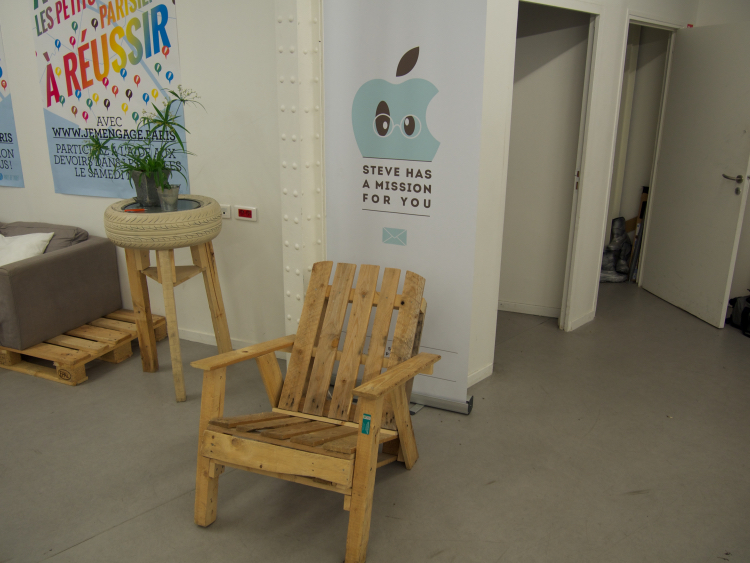
Space for solidarity and community building
SenseCube’s true added-value is its international community of volunteers, which double as early adopters. The community’s rise in power was developed by Christian Vanizette, co-founder of MakeSense, which hosts the incubator and has mobilized, in the past three years, more than 15,000 people to help social entrepreneurs worldwide.
SenseCube’s incubees also find synergies among themselves. Upcycly will build a loading ramp for Love your waste, a start-up that offers to convert food waste, which establishments are legally required to treat, into biomethane.
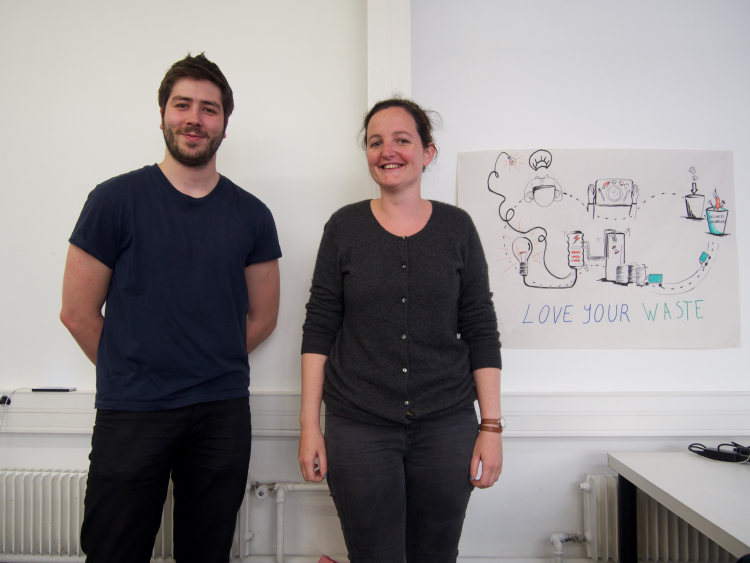
Urbi et orbi models
Not all incubees are “lucky” enough to access such a market. Maï-Lien Nguyen Duy emphasizes SenseCube’s priority given to replicable models. For example, Ma ville je t’aide, also incubated by SenseCube, federates wishes for citizen initiatives and created a white label for Paris: Paris je t’aide!
In any case, it’s a model that incubees from the previous session seem to have followed. Activ’Action, which valorizes the potential of unemployed people, offers its services in Paris, Strasbourg and Singapore. L’Alternative urbaine offers guided city tours by poorly housed individuals.
Thanks to SenseCube, young social sprouts are experimenting with methods borrowed from start-up culture : prototyping supply, crowdfunding… If successful, a part of the profit goes back to SenseCube. But it’s not the incubator’s only source of funding. It also rents co-working spaces to companies, so that it can host start-ups for free.
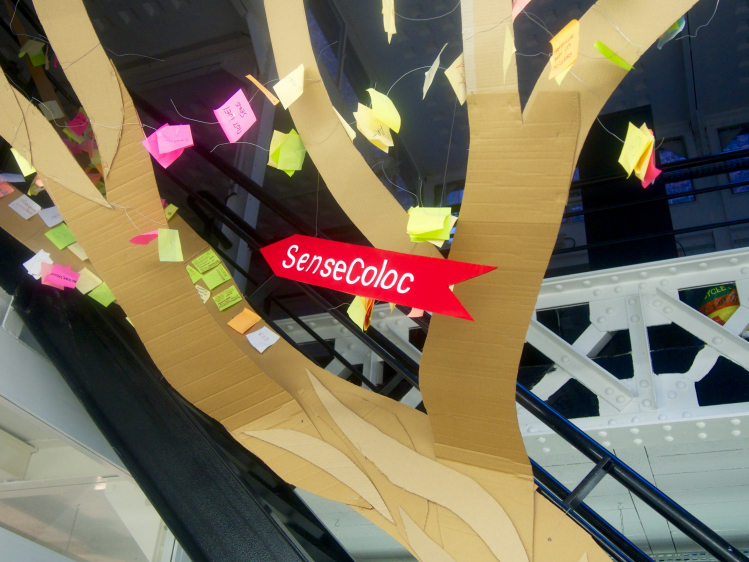
As the second session ends in less than a month, the incubator calls for applicants for the next one.
Un projet social innovant à développer? Le programme @SenseCubeCC est pour vous! Candidatez > http://t.co/dFMLnc51Qi pic.twitter.com/J9Mp8YH29v
— makesense for _entrepreneurs (@makesenseforE) May 27, 2015
More info on SenseCube
